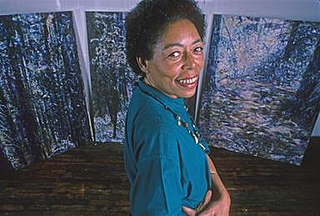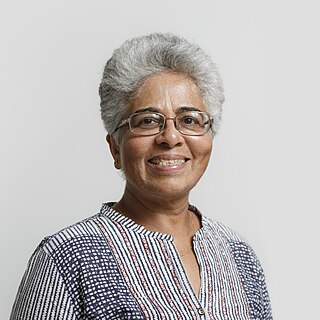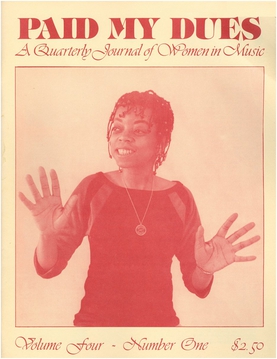
Ms. is an American feminist magazine co-founded in 1971 by journalist and social/political activist Gloria Steinem. It was the first national American feminist magazine. The original editors were Letty Cottin Pogrebin, Mary Thom, Patricia Carbine, Joanne Edgar, Nina Finkelstein, Mary Peacock, Margaret Sloan-Hunter, and Gloria Steinem. Beginning as a one-off insert in New York magazine in 1971, the first stand-alone issue of Ms. appeared in January 1972, with funding from New York editor Clay Felker. It was intended to appeal to a wide audience and featured articles about a variety of issues related to women and feminism. From July 1972 until 1987, it was published on a monthly basis. It now publishes quarterly.
Susan Brownmiller is an American journalist, author and feminist activist best known for her 1975 book Against Our Will: Men, Women, and Rape, which was selected by The New York Public Library as one of 100 most important books of the 20th century.

Charlotte Anne Bunch is an American feminist author and organizer in women's rights and human rights movements. Bunch is currently the founding director and senior scholar at the Center for Women's Global Leadership at Rutgers University in New Brunswick, New Jersey. She is also a distinguished professor in the Department of Women's and Gender Studies at Rutgers.

Phyllis Chesler is an American writer, psychotherapist, and professor emerita of psychology and women's studies at the College of Staten Island (CUNY). She is a renowned second-wave feminist psychologist and the author of 18 books, including the best-sellers Women and Madness (1972), With Child: A Diary of Motherhood (1979), and An American Bride in Kabul: A Memoir (2013). Chesler has written extensively about topics such as gender, mental illness, divorce and child custody, surrogacy, second-wave feminism, pornography, prostitution, incest, and violence against women.

The Iranian Women's Rights Movement, is the social movement for women's rights of the women in Iran. The movement first emerged after the Iranian Constitutional Revolution in 1910, the year in which the first women's periodical was published by women. The movement lasted until 1933 when the last women's association was dissolved by the government of Reza Shah Pahlavi. It rose again after the Iranian Revolution in 1979.

HERESIES: A Feminist Publication on Art and Politics was a feminist journal that was produced from 1977 to 1993 by the New York-based Heresies Collective.
Fem is a major feminist magazine and the first Latin American one. It was published in print between 1976 and 2005, and has been digital ever since.

Vivian E. Browne was an American artist. Born in Laurel, Florida, Browne was mostly known for her African-American protest paintings, and linking abstraction to nature. She has received multiple awards for her work, been an activist, professor and a founder of many galleries. According to her mother, Browne died at 64 from bladder cancer.
Women Artists News was a feminist magazine produced between 1975 and 1992 in New York City.

Ammu Joseph is a journalist, author, media analyst and editorial consultant based in Bangalore, India. Ammu writes primarily on issues relating to gender, human development, the media and culture. She writes for a number of mainstream publications and web-based media.

Fighting Woman News was an American feminist periodical founded in December 1975 by Valerie Eads. This newsletter grew out of Eads's regular column in Black Belt Woman. This magazine focused on martial arts, self-defense, and combative sports for and by women. It published news and articles on techniques, workshops, and events. Fighting Woman News also regularly sent representatives to women's conferences to promote self-defense and martial arts literature for women.
Primavera was an American feminist magazine based in Chicago, Illinois from 1975 to 2006. Established by Janet Ruth Heller, Celia Josephson, and Deborah Gordon Fisher, the magazine contained poetry, illustrations, fiction, and photography. It was most notable for its lack of political content—they concerned themselves more with content that reflected on women’s experiences.
Black Maria was an American feminist magazine from Chicago, Illinois. Established in 1971 by Donna Ippolito, Marge Everett, Karen Ney, and Kathy Rowley, the magazine devoted their publications on feminist journalism, essays on controversial topics, and lesbian writing. Describing itself as a "feminist journal of art and politics," their content also included book reviews, biographies, and interviews. The first few issues of the magazine focused on articles about and by Chicago-area women until they expanded nation-wide later on.

The Second Wave: A Magazine of The New Feminism was an American feminist magazine from Cambridge, Massachusetts. Founded in 1971, the magazine published fiction, poetry, book reviews, graphics, and various feminist articles. Though they included works by famous feminists such as Adrienne Rich, Mary Daly, and Victoria Redel, the magazine mostly published works by unknown authors.

Quest: A Feminist Quarterly was an American feminist journal published in Washington, D.C. from 1974 until 1982. Founded by Charlotte Bunch, Dolores Bargowski, Mary Helen Mautner, Emily Medvec, Juanita Weaver, and many others, the journal published articles and essays devoted to the feminist movement. The publication was primarily aimed toward feminist academics, theorists, and analysts—but it also pursued to include women who wanted to learn more about the feminist movement.
Majority Report was an American feminist newspaper published in New York, N.Y. from May 1971 to April 1979. Founded by the Woman's Strike Coalition, the periodical described itself as "A Feminist Newspaper Serving the Women of New York." Majority Report had an all-woman staff who were all dedicated on reporting feminist news that weren't otherwise covered by major publications such as The New York Times. It published articles on topics such as equal rights legislation, information on services regarding divorce and daycare, and various reviews and critiques on sexist media representations.

Paid My Dues: Journal of Women & Music was an American feminist periodical published from 1974 until 1980. Paid My Dues was the first, and for some time the only, feminist music journal. Published quarterly, it provided a literary space for women to write and share their experiences and ideas about music. It published articles on instruments, reviews on songs and albums, as well as music sheets. In contributing to the feminist movement of the late '70s, the magazine was devoted to celebrating the culture and history of women and music.
Sunbury: A Poetry Magazine was an American feminist magazine published and edited by Virginia Scott in Bronx, New York. The periodical was devoted to promoting the marginalized works of women, blue-collar, and minority poets. Apart from poetry, the magazine also published fiction, interviews, and reviews.











